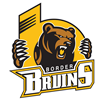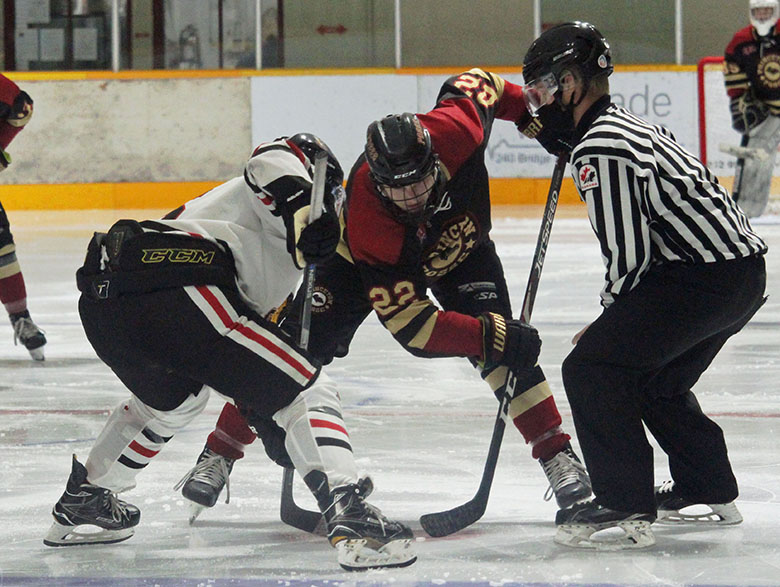Just because Kootenay International Junior Hockey League coaches don’t have games to prepare for, doesn’t mean they aren’t still busy and working hard. This week’s KIJHL Notebook focuses on the bench bosses and how the pandemic is pushing them. We connected with a coach from each division to find out what this time has been like for them and what they are doing.
![]() Creston Valley Thunder Cats players are constantly impressing the coaching staff with their resiliency and dedication to get better.
Creston Valley Thunder Cats players are constantly impressing the coaching staff with their resiliency and dedication to get better.
“As a group, many of our players in their own way, have made the choice to stay on the ice and keep working,” says coach-GM Bill Rotheisler. “As a coach, there is nothing better than when you have a group of individuals who understand that there was a gap to close and show the commitment and confidence to do what is necessary to close it.”
The pause has been a big opportunity to do some skill development and stay relevant, an opportunity that would otherwise not exist, he says. The players have big goals and Rotheisler says the reality is that there are just as many spots on Junior A and college teams to make next year, regardless of who is or is not on the ice this year. It’s a substantial opportunity to leapfrog players.
The coaching staff is determined to keep things as fun at the rink and mix in competition, while still refreshing systems. They have used the time to learn more about the players and created zoom sessions and classes about using different resources, meditation and leadership meetings.
“Every year presents challenges in different forms,” says Rotheisler. “You can teach the guys that just because this challenge has a different face, the path to getting through the challenge remains remarkably consistent and recognizable. Every single one of these boys will face a bigger challenge in their life.”
 As the challenge keeps growing, Grand Forks Border Bruins coach-GM John Clewlow says this is an opportunity to learn and grow as a team and as individuals. The players are doing more power skating and skills drills and time is dedicated to work on different aspects and abilities.
As the challenge keeps growing, Grand Forks Border Bruins coach-GM John Clewlow says this is an opportunity to learn and grow as a team and as individuals. The players are doing more power skating and skills drills and time is dedicated to work on different aspects and abilities.
“To make it competitive we have also started a team-on-team strategy,” says Clewlow. “They have drafted two teams and they compete against each other in skating races and mini games that allow for Phase 2 competition.”
The Border Bruins have also included weekly trades as the captains bring their proposals to Clewlow and they decide if the trade benefits the teams.
“I feel like this competition keeps them engaged and allows them to be as competitive as possible without games,” says Clewlow. “The hardest part is to keep the players attracted to the hockey season. We are doing everything we can to keep them engaged and enjoying the sport in such uncertain times.”
 Ken Law of the Kelowna Chiefs has described this season as “a bit of a rollercoaster with all the unknowns.”
Ken Law of the Kelowna Chiefs has described this season as “a bit of a rollercoaster with all the unknowns.”
Instead of preparing for games as originally hoped, the Chiefs have been working with players in Phase 2 as they did in August. Law and his coaching staff have broken down their five-day practices to different components, while maintaining intensity.
“We have been running structured skill-based practices enhanced with team system reinforcement,” says Law. “We always try to add in some competition-based activities.”
Law has adapted to working with players by shifting the focus by having them working on improving individual skills and conditioning. It’s important to keep everyone looking forward to being at the rink each day and working hard to increase not only skill levels, but conditioning and mental preparedness.
“It can be difficult working towards a starting line when that line keeps getting moved,” he says. “Each time games are postponed, we need to refocus the guys and remind them we can only control what we do and not what happens.
“We have so many challenges with making sure our players stay focused, committed, and happy and healthy,” he continued.
 In Revelstoke, Grizzlies coach-GM Ryan Parent says they have come back from the break putting a lot of effort into creating better individual skill sets and changing habits to be more positive through practice.
In Revelstoke, Grizzlies coach-GM Ryan Parent says they have come back from the break putting a lot of effort into creating better individual skill sets and changing habits to be more positive through practice.
“It is our priority to ensure our players have the tools necessary to achieve their goals both short-term and long-term,” says Parent. “Having few games has allowed us to train players to make some personal performance gains.
“Everyday as a staff we are looking to engage and challenge our players to be better,” he continued. “That starts with our staff. We too have a desire to improve daily/weekly. Keeping it competitive has been fun for our group.”


























